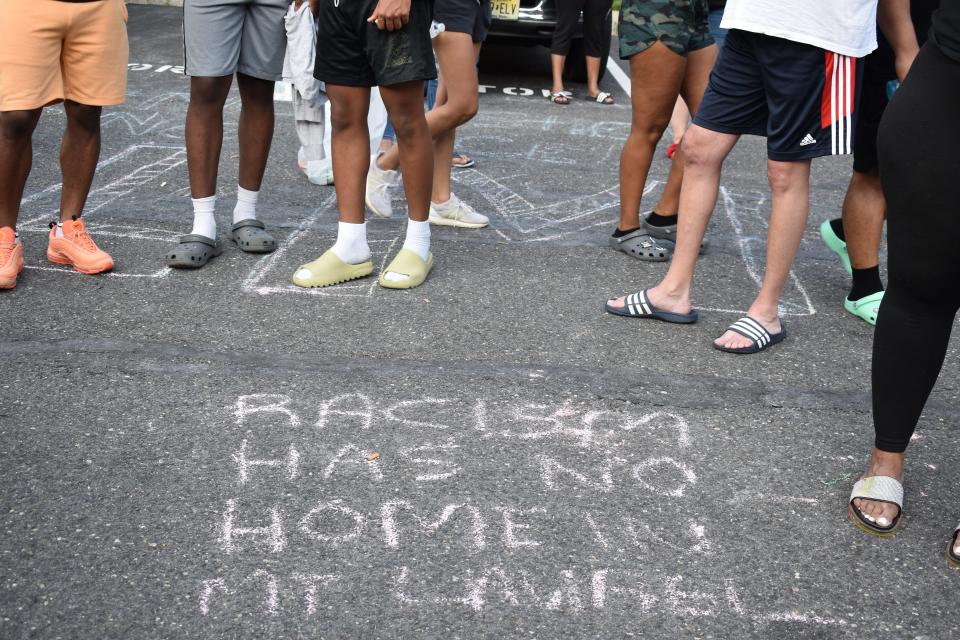New Jersey report looks at surge of bias incidents, hatred
TRENTON – A new report shows bias incidents still surging to record levels across New Jersey — but it helps to know where the numbers are coming from.In part, state officials say, the worsening numbers reflect an improvement in reporting bias offenses at schools of all levels.
So, the latest report says, schools posted 204 more incidents last year — about 40 percent of the state's overall increase of 488.
And because of that greater scrutiny, juveniles appear to the largest group of haters.
Philadelphia man accused: South Jersey police help FBI probe of antisemitic, Islamophobic threats
They accounted for 401 offenders — out of a total of 1,078 — in a final report for 2022.
Juveniles that year also made up about 30 percent of victims by age.
“The data highlights that bias incidents too often threaten the safe and equitable learning environment our students deserve,” said a statement from the Attorney General’s Office.
Where does the hate come from?
But it also noted long-time problem areas unlikely to involve children.

They include “the spread of misinformation and bias on social media platforms, political divisiveness across the nation, and the lingering backlash” against the racial justice movement and public health measures taken during the pandemic.
What minorities face the most bias?
Preliminary numbers for 2023 show bigots continued to commonly target blacks, 34 percent of total incidents, and Jews, 22 percent.
Last year’s numbers also showed spikes of 75 percent in bias incidents aimed at Muslims and 70 percent for Arabs.
Statewide, bias incidents reached record highs of 1,885 in 2021 and 2,211 one year later.
Preliminary figures show a 22 percent increase last year, to 2,699 incidents.
In releasing the March 7 report, the Attorney General’s Office noted plans for a campaign to build public awareness of bias-incident reporting.
That effort, to start later this year with the tagline “No Hate in the Garden State,” also will promote resources for victims of bias crime and bias incidents.
In addition, the agency noted it has:
●Told schools that civil rights laws require them to "proactively respond to bias incidents when they occur.”
●Issued guidelines to K-12 schools, in partnership with the Department of Education, on ways to prevent and address bias incidents and discriminatory disciplinary practices.
●Released a July 2023 report analyzing white supremacy in New Jersey, including its “painful and profound impact" on young people.
The Attorney General's Office also said a panel at Camden County College, to be held sometime this spring, will address combatting bias on campuses. Colleges and universities were the site of about 4 percent of last year's incidents.
Elementary and secondary schools led all locations with about 22 percent of last year's bias incidents.
Other common places to encounter bias in 2023 were:
●Residences, representing about 20 percent of all reported incidents
●Streets and sidewalks, representing 11.6 percent
●Online, about 10 percent.
The 2022 report also showed these results for South Jersey counties:
Atlantic - Had 23 reported incidents, down from 43 a year earlier
Burlington - Led the region with 197 incidents, up from 179 in 2021
Camden - Rose to 86 from 78 a year earlier
Cape May - Fell to 29, down from 35 in 2021
Cumberland - No change with nine incidents each year
Gloucester - No change with 96 incidents each year
Salem - No change with five incidents each year
People can report bias incidents to their local police departments, by calling 800-277-BIAS, or via the state's online portal.
Jim Walsh is a senior reporter for the Courier-Post, Burlington County Times and The Daily Journal. Email: Jwalsh@cpsj.com.
This article originally appeared on Cherry Hill Courier-Post: Report blames social media, hate groups and politics for bias cases

